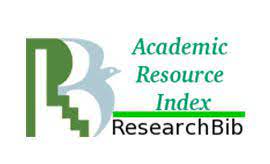STAGES AND CONDITIONS OF IMPLEMENTATION OF STEM EDUCATION IN UKRAINE
DOI:
https://doi.org/10.51707/2618-0529-2021-21_22-10Keywords:
STEM; STEAM; STREAM; STEM-education; innovative methods; New Ukrainian school; competency approach; applied learning.Abstract
Every year, despite our desires and preferences, innovative processes take place in the world, new technologies are created that permeate all spheres of social life. Thus, the last couple of years have been marked by the emergence of 3D printers, the creation of supermarkets of the future, modernization of production through robotic prefabricated systems, testing of robot buses, the development of virtual reality and artificial intelligence and more. Various innovations also affected the education system of Ukraine. Forms, methods, teaching aids, the role of teacher and student, curricula and assessment systems are changing. With the modernization of the educational process, new directions in education appear. Yes, today you can hear about mixed, inverted, mobile, social learning, video scribing, cloud technologies, inverted classroom, storytelling, start-up challenge, etc. Due to the spread of coronavirus infection and the introduction of quarantine, distance education has become relevant. Thus, at the present stage there is a global reform of Ukrainian education, aimed at changing conceptual priorities, finding ways to integrate into the European education system. One of the promising areas is the introduction of STEM-education, which provides for the integration of natural sciences, which focuses on the development of new technologies, mathematical calculations, innovative thinking. In this context, there is a reorientation of the educational process to the development of personality, and such a reorientation involves the improvement of the entire education system, and consequently the teaching methods of individual disciplines, including natural sciences. To do this, it is necessary to calculate the conditions and stages of implementation of STEM-education in the educational process of general secondary education in Ukraine, which in the future should meet the needs of the country for well-trained engineers and specialists in STEM education.
References
Cambridge Academic Content Dictionary. Retrieved from https://dictionary.cambridge.org/dictionary/english/stem.
European Commission. Science education for Responsible Citizenship. (Report to the European Commission of the Expert Group on science education). (2015). Brussels: European Commission. Retrieved from http://ec.europa.eu/research/swafs/pdf/pub_science_education/KI-NA-26-893-EN-N.pdf.
Kontseptsiia rozvytku pryrodnycho-matematychnoi osvity (STEM-osvity) [The concept of development of natural and mathematical education (STEM-education)]. (2020). Retrieved from https://zakon.rada.gov.ua/laws/show/960-2020-%D1%80#n8 [in Ukrainian].
Caple, K. (2017). STEM, STEAM, STEMM – does it matter? Retrieved from https://www.innovationunit.org/thoughts/stem-steam-stemm-does-it-matter/.
Berk, L. J., Muret-Wagstaff, S. L., Goyal, R., Joyal, J. A., Gordon, J. A. Faux, R., et al. (2014). Inspiring careers in STEM and healthcare fields through medical simulation embedded in high school science education. Adv Physiol Educ, 38 (3), 210–215. DOI: 10.1152 / advan.00143.2013.
Laing, A. (2014). From STEM to STEMM. Retrieved from https://charteredabs.org/stem-stemm/.
On Education: Low of Ukraine. (2017). Retrieved from https://zakon2.rada.gov.ua/laws/show/2145-19 [in Ukrainian].
The New Ukrainian School. Retrieved from https://mon.gov.ua/ua/tag/nova-ukrainska-shkola [in Ukrainian].
Honcharova, N., Kamenaeva, I., Kovalenko, M., Patrykeieva, O., Chernomorets, V., & Nazarenko, T. (2019). Economic education in GSEI (General Secondary Education Institutions). Research. Education management, 8 (416), 12–15. Retrieved from http://lib.iitta.gov.ua/717443/ [in Ukrainian].
Honcharova, N. (2017). Poniatiino-katehorialnyi aparat z problemy doslidzhennia aspektiv STEM-osvity. [Conceptual and categorical apparatus on the problem of researching aspects of STEM education]. Scientific notes of the Small Academy of Sciences of Ukraine. Series: Pedagogical Sciences, 10, 104–114 [in Ukrainian].
Bykov, V. (2011). Cloud technologies, ICT outsourcing and new functions of ICT units of educational and scientific institutions. Information technologies in education, 10, 8–23 [in Ukrainian].
Morse, N., Strutynska, O., & Umruk, M. (2018). Osvitnia robototekhnika yak perspektyvnyi napriam rozvytku STEM-osvity [Educational robotics as a promising area of education STEM]. Open educational electronic environment of a modern university, 5, 178–187 [in Ukrainian].
Patrykeeva, O., Vasylashko, I., Gorbenko, S., Lozova, O. & Burkina, N. (2019). STEM-osvita 2019–2020 [STEM-education 2019–2020]. Kyiv: School World Publishing House, 10 (418), 12–22 [in Ukrainian].
Polikhun, N., Postova, C., Slipukhina, I., Onopchenko, G. & Onopchenko, O. (2019). Uprovadzhennia STEM-osvity v umovakh intehratsii formalnoi i neformalnoi osvity obdarovanykh uchniv [Introduction of STEM-education in the conditions of integration of formal and non-formal education of gifted students]. Kyiv: Institute of Gifted Children NAPS of Ukraine [in Ukrainian].
Sipii, V. (2019). Modernizatsiia zmistu fizychnoi osvity u himnazii v konteksti vprovadzhennia STEM-osvity v Ukrain [Modernization of the content of physical education in the gymnasium in the context of the introduction of STEM-education in Ukraine]. Novi tekhnolohii navchannia – New learning technologies, 92, 262–267. Retrieved from http://lib.iitta.gov.ua/id/eprint/718501 [in Ukrainian].
Kontseptsiia navchannia heohrafii Ukrainy v osnovnii ta starshii shkoli [Concept of studying the geography of Ukraine in the basic and high school]. (2016). Retrieved from http://lib.iitta.gov.ua/714119/.
Kontseptsiia ekonomichnoi osvity v himnazii ta litsei Ukrainy [The concept of economic education in basic and high schools in Ukraine]. (2018). Retrieved from http://lib.iitta.gov.ua/717475/.
Hlosarii terminiv, shcho vyznachaiut sutnist poniattia STEM-osvita [Glossary of STEM terms]. Retrieved from http://www.imzo.gov.ua/stem-osvita/glosariy/.
Downloads
Published
How to Cite
Issue
Section
License
Copyright (c) 2022 Scientific notes of Junior Academy of Sciences of Ukraine

This work is licensed under a Creative Commons Attribution 4.0 International License.













